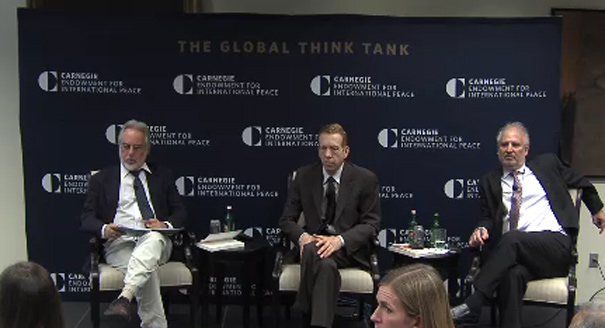Registration
You will receive an email confirming your registration.
No issue in international development is as important, or vexing, as the relationship between governance and development. Early efforts to find a straight-line relationship between governance reform and development progress have given way to sharply contending ideas on the topic. A new book by Brian Levy, senior adjunct professor at Johns Hopkins SAIS, Working with the Grain: Integrating Governance and Growth in Development Strategies, seeks to advance thinking in this domain. The Carnegie Endowment for International Peace hosted a launch event for this book.
Drawing on more than 20 years of experience at the World Bank, Brian Levy delves deeply into how different governance systems affect development. His account is rich with challenging and unexpected conclusions, especially on key issues like the developmental value of political competition and how virtuous cycles of governance reform can be fostered. He set out the book’s main arguments and implications for aid providers. Larry Garber, senior advisor in the Bureau for Policy, Planning, and Learning at USAID, followed with in-depth comments. Tom Carothers moderated the session. Copies of the book were on sale at a special launch event price. For more information on the book, see www.workingwiththegrain.com.
Brian Levy
Brian Levy is senior adjunct professor of international development at Johns Hopkins University SAIS. Levy had a 23-year career at the World Bank, where he worked to integrate governance concerns into the theory and practice of economic development. He has published on topics such as capacity development in Africa and the political economy of development strategy.
Larry Garber
Larry Garber is senior advisor to the Bureau of Policy, Planning and Learning at USAID. He has previously been detailed to the Africa Bureau and the Middle East Strategic Planning Group. Garber teaches as an adjunct at the Washington College of Law and has written extensively on issues relating to human rights, democratization, and election monitoring.
Thomas Carothers
Thomas Carothers is vice president for studies at the Carnegie Endowment for International Peace. He is the founder and director of the Democracy and Rule of Law Program and oversees Carnegie Europe in Brussels and is a leading authority on international support for democracy, rights, and governance.
